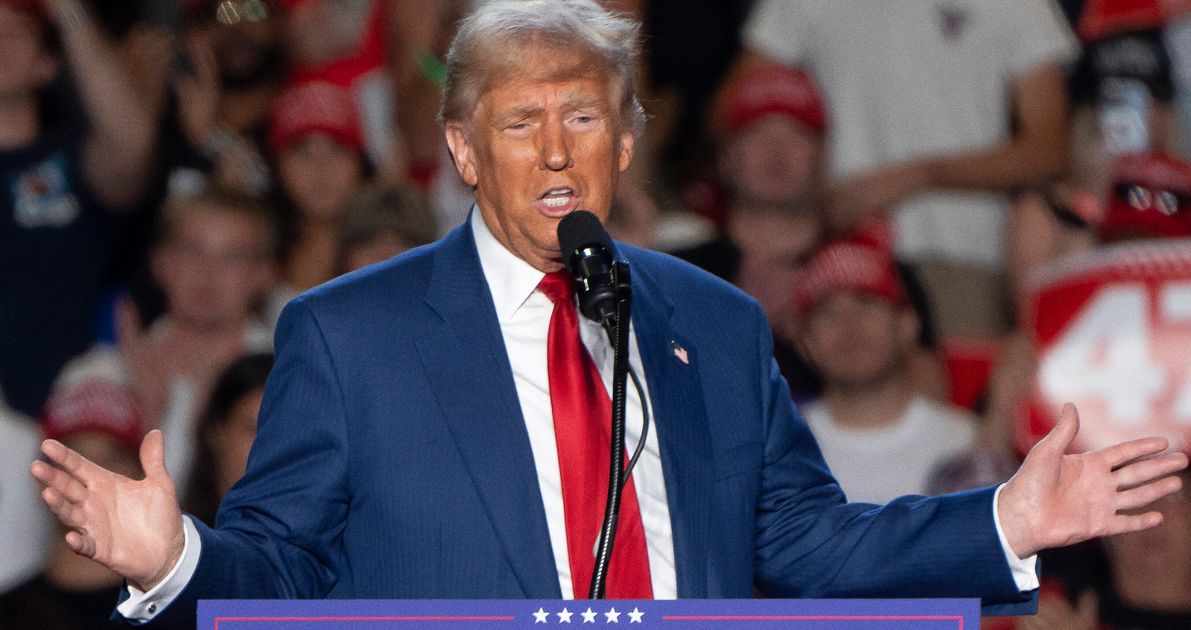In the wake characteristically unwavering style, Donald Trump recently escalated his already contentious rhetoric around immigration, specifically those coming from Latin America. This escalation represented the latest instance of his distinct approach toward immigration, characterized by inflammatory, and debatably dehumanizing language.
Addressing an audience at a rally, the former reality television star vividly painted a picture of mass violence and destruction brought on by an alleged “army of migrant gangs.” This spectacle took place in a state where 31.6% of the populace is Latino, an indication of the demographic targeted by his message.
“They unleashed an army of migrant gangs waging a campaign of violence,” Mr. Trump exclaimed, drawing on fear and provoking anti-immigrant sentiment amongst his audience. Building upon this narrative, Trump asserted further, “You got millions of people pouring in,” further contributing to the fear.
These claims, however, stand in stark contrast with hard data. Statistics have made it evident that illegal border crossings have been on a steady decline. According to the U.S. Border Patrol, there has been a decrease of about 75% in illegal crossings since the turn of the century, from over 1.6 million in 2000 to less than 400,000 in 2018. Such data discredits Trump’s narrative of an inundation of illegal migrants overwhelming the nation.
What is perhaps troubling for many is not just the inaccuracy of his claims, but the dehumanizing language utilized in delivering them. As critics have pointed out, the description of immigrants as an “army” and “gangs” serves to dehumanize and mark them as a security threat. This stigmatization can breed a perception that migrants are not human beings in search of better lives, but invaders to be feared and fought.
This type of rhetoric has tangible backlash, especially within communities of Latinos and other immigrant groups who are unfairly disadvantaged by such misrepresentations. They bear the brunt of animosity fueled by these misleading declarations. More chilling is the potential that this language could incite prejudice or even violence against these targeted groups.
The negative impact extends beyond the immigrant community to ripple through American society as a whole. These constant potshots at the immigrant community serve to widen the divide in an already polarized nation, fostering animosity and fear rather than unity and understanding.
Undoubtedly, the issue of immigration is a complex and multifaceted one that requires informed and compassionate discourse. There is a need for balanced and truthful dialogue on the challenges and potential solutions regarding immigration. However, inflammatory and dehumanizing rhetoric serves to obstruct –not promote– constructive action towards this.
Whether Mr. Trump’s intent is political strategy, personal conviction, or simply a lack of understanding, his rhetoric essentially exchanges humanity for sensationalism. It replaces reasoned dialogue with unverified claims and paints a segment of the population as the ‘other,’ to be feared and expelled.
While political leaders are expected to address the issues confronting their nations head-on, it is essential that they do so with a respect for truth and human dignity. Dehumanizing speech does not advance any serious discussion aimed at resolving the issue of immigration but only serves to heighten discord and propagate harmful stereotypes.




